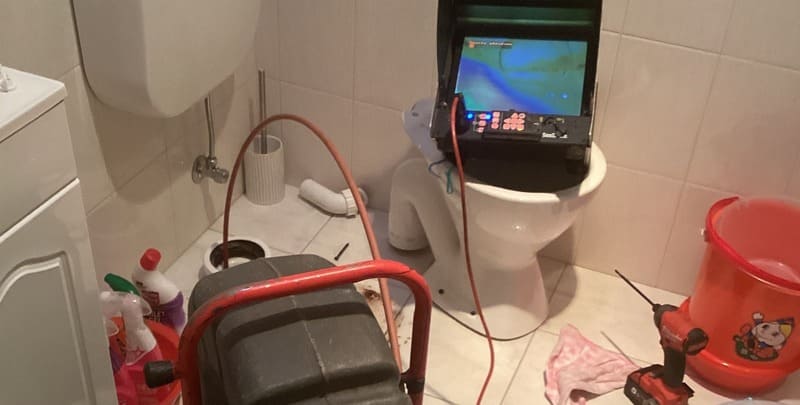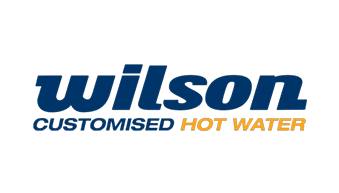
How to Unblock a Drain
Do you want to know how to unblock a drain?
Clogged drains are one of the most common plumbing problems in Australia. A blocked drain pipe can strike at any time and can affect even newly laid pipes, so it pays to be prepared.
An untreated blocked drain can cause larger problems such as leaks and flooding. Severe drain blockages can even result in a burst water pipe, which can be very costly to repair.
Find out which 5 things to NOT put down the sink, so you can avoid a clogged drain in the first place.
Your Guide to Clearing Blocked Drains
If you encounter a blocked drain, there’s every chance you may have a bigger problem on your hands. You might find yourself with a broken pipe or a tree root growing through it.
If you regularly have plumbing issues with your drains blocked, it is always recommended that you get a CCTV inspection of the affected drain to ensure you’re not dealing with a more serious issue.
When a drain disaster hits, here are some quick fixes to help you unclog your kitchen sink drains fast.
Boiling Water
When first faced with a blocked drain, one of the easiest natural remedies to try is simply flushing it out with boiling water. Pouring hot water is certainly not a fail-safe method and will only work with very minor blockages, but is a good place to start before trying more complicated methods. Simply boil a kettle of water and pour it into the afflicted drain.
A word of caution – we generally advise that you don’t pour boiling water down plastic or PVC pipes as the extreme heat can soften them. While this method works best with metal pipes, you could otherwise play it safe by simply using hot water from the tap.
DIY Natural Drain Cleaner
Another of the easier DIY drain clearing methods is to use natural cleaners such as baking soda and vinegar. These home remedies are great because you can use ingredients you probably have lying about your house. This method is particularly effective for clearing sink blockages caused by cooking oil or grease build-up, or other organic matter such as food scraps.
All you need is a combination of baking soda and vinegar. Half a cup of baking soda (or bicarb soda) and two cups of vinegar should do the trick. Pour the boiling water and siphon the baking soda down the problem drain. Try and get it down the drain as deep as you can.
Next, pour half the vinegar into the drain. The vinegar will react with the bicarb and create a bubbling reaction. Cover the sink drain with a plate or flat plastic to direct the fizz down the drain (if your toilet is blocked, simply flush the toilet at this point).
Now, add the remainder of the vinegar and let it sit for one hour, or even longer, if possible. When the hour is up, pour white vinegar and a kettle full of hot water down the drain or toilet to finish clearing up the natural cleaner and, hopefully, whatever was causing the blockage.
The Plunger
The faithful plunger is a tried and true method for clearing clogs. Most people have one tucked away in some corner of their houses. But when your drain is clogged, do you know how to wield your plunger?
Thankfully, they are pretty straightforward.
Simply place the plunger’s rubber flange over the mouth of the drain pipe. Pull back the plunger slightly to ensure you have created a seal. Pull the plunger in and out vigorously for several minutes or until you hear the drain make a gurgling sound. Make sure to keep the rubber flange covered in cold water to ensure it remains sealed. Keep some old towels on hand, as well as a bucket underneath as things can get messy.
This method is most effective at clearing blocks caused by an accumulation of waste or by people putting the wrong things such as foreign objects down their sinks.
The Drain Snake
For Australian homeowners grappling with blocked drains, a drain snake can be a highly effective tool. Particularly useful for a shower drain or outdoor drains that are frequently clogged with leaves or debris, this flexible, coiled tool is designed to navigate through the twists and turns of your pipes. You might also hear people refer to it as a plumber’s snake or drain auger.
The process is straightforward. Insert the drain snake head into the blocked drain and turn it to catch and draw out obstructions. For more stubborn blockages, you might want to go for an electric eel. This is a motorised version of a drain snake, and can provide the additional power you need to clear your pipes. While drain snakes can tackle many common blockages, for persistent or recurrent issues, it’s wise to seek professional help from a licensed plumber to make sure your plumbing system continues to function at its best.
Chemical Drain Cleaners
Always prioritise safety when using chemical-based drain cleaners such as caustic soda or anything that might contain hydrochloric acid. These products can be highly effective at breaking up blockages in drains and are readily available at hardware stores. However, they are highly potent and potentially hazardous.
It’s essential to wear gloves and protect your eyes, as these substances can cause severe burns. Follow the directions precisely, usually involving dilution with water, and never exceed the recommended amount—typically no more than one cup. Always be careful when adding directly to the toilet or drain to avoid splashback or pipe damage. For safety, consider mechanical methods like a drain snake first.

CCTV Drain Inspection
Now it is time to get serious. If you have read this far, it probably means that your drain issue is more serious than a simple clog. You may have damaged drainpipes and need a more comprehensive solution.
It may be that there is more than one blockage, that the blockage is further along than originally thought or that your pipes may be damaged or have collapsed. By using the latest CCTV drain camera technology, you can easily discover what’s creating the blockage. This removes any guesswork from the equation. It also allows us to effectively repair the drainpipe exactly where we’ve located the issue.
Hydrojet and Electric Drain Machines
Once your drain issue has been identified by a CCTV camera, a Hydrojet drain cleaner or an electric drain machine can quickly destroy even the hardiest of blockages.
With a reach of close to 100 meters, a Hydrojet works by inserting a flexible cable down your drain. The Hydrojet then blasts extremely highly pressurised water through your pipes and drains, clearing blockages and even slicing through invading roots resulting in squeaky clean drains and pipes.
Similarly, an electric drain machine clears blocked drains by inserting a flexible cable with a versatile cutting edge attached down your pipes. It can then slice and cut through blockages but does has a shorter reach than a Hydrojet.
Excavation
When things are really bad, it might be time to excavate your drains and pipes. Drain excavation is a last resort. We only use it when we’ve exhausted all other methods, including pipe relining.
A drain excavation is most regularly called for when a drain pipe has been destroyed beyond repair. This can be the result of invading tree roots, debris or shifting and compacting soil causing drainpipes to collapse.
In these scenarios, it might be necessary to completely remove the damaged pipes completely and replace them. The biggest advantage of this method is that your new pipes will be better than new. And, if done right, they will probably never cause you any issues ever again.
Know When to Call the Blocked Drain Professionals
Sometimes, the best method is simply to know when to call the pros should you need help unblocking your drain. Usually once you’ve tried tackling your drain blockage with a plunger, baking soda and vinegar or a chemical solution and are still having problems, it’s a sure sign you likely have a more serious problem on your hands.
In these cases, you might need the services of an emergency plumber with the experience, equipment and next-level knowledge of how to unblock a drain.
Contact Metropolitan Plumbing when you need an expert who can use a CCTV inspection machine, a Hydrojet or an electric drain machine to clear your drains. As a last resort, we can even excavate your drains and pipes.
Please note: This information is provided for advice purposes only. Regulations differ from state to state, so please consult your local authorities or an industry professional before proceeding with any work. See our Terms & Conditions here.
Published: 2020-02-20

















